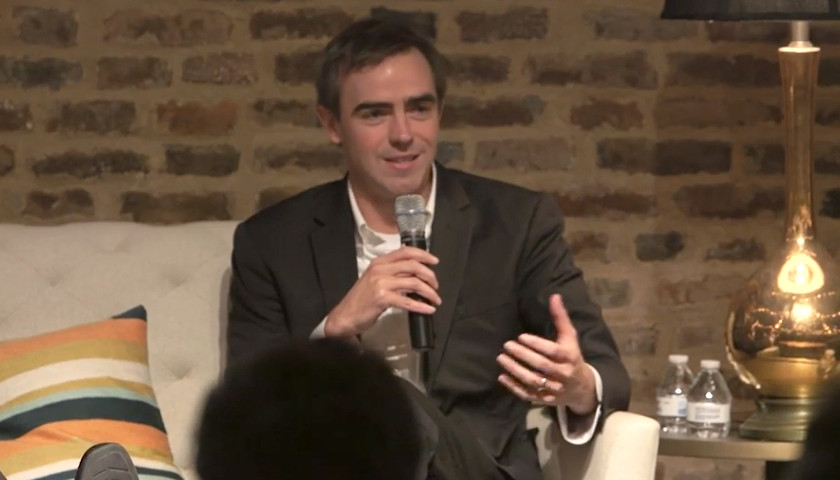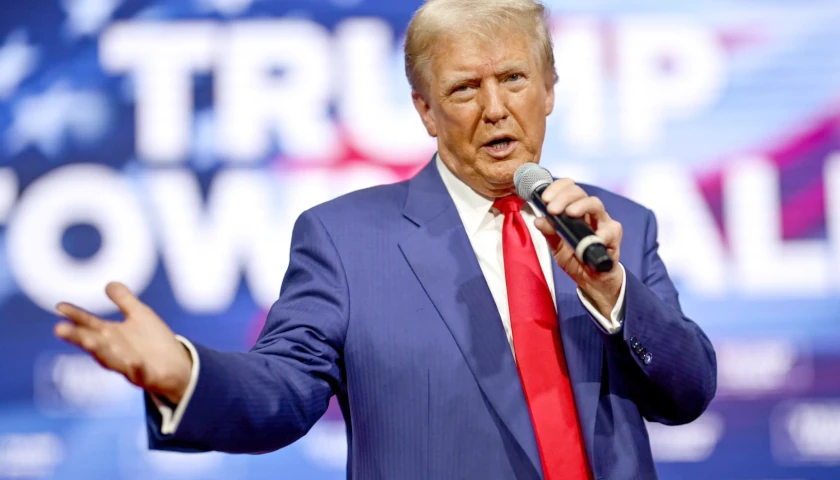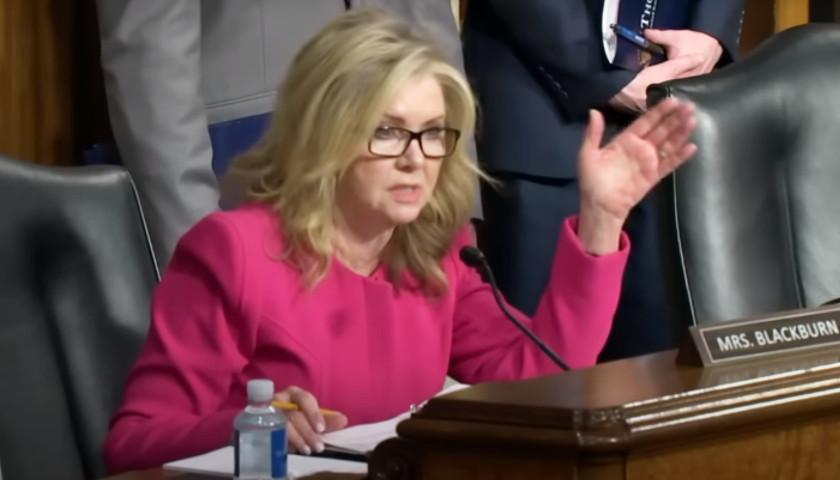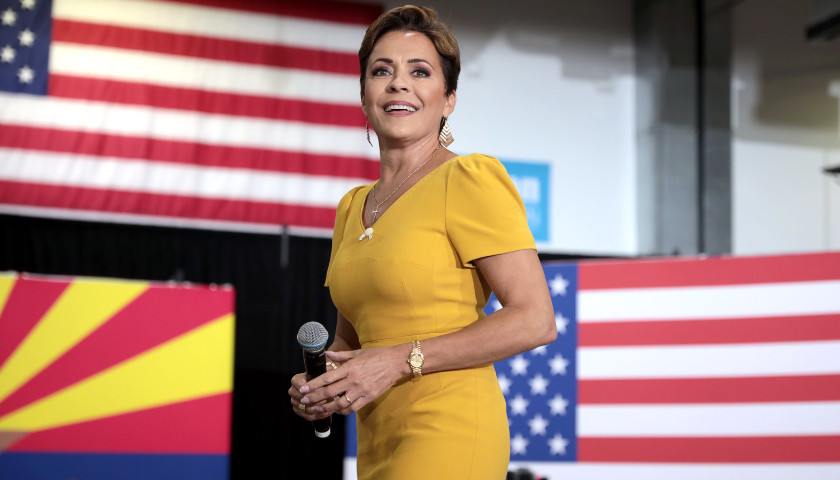Brad Smith wasn’t planning to go to Washington DC to work. But a few months into 2020, he found himself reporting to the President of the United States of America and briefing the nation on television. How did he go from running a business in Nashville to working in the West Wing of the White House? I was able to sit down with Brad recently to learn a little bit more about his story.
As background, Brad grew up in East Tennessee, where his mom was a dentist and his dad worked at Oak Ridge National Laboratory. After attending Harvard and then Oxford University as a Rhodes Scholar, Brad returned to Tennessee, where he served as the founding executive director of the education non-profit Tennessee SCORE and then as chief-of-staff at the Tennessee Department of Economic Development, helping recruit companies to the state. After his grandmom passed away in 2009, Brad launched Aspire Health, a company that provides care to some of the country’s sickest patients in the comfort of their own home. Brad grew Aspire into the nation’s largest home-based palliative care provider, with over 700 employees caring for patients in 25 states and over 70 cities. After selling the company to Anthem in 2018, Brad became Chief Operating Officer of Anthem’s healthcare services group, a $2 billion division that included five businesses.
In 2019, Brad received a call asking if he would be interested in joining the Trump Administration to run the agency responsible for healthcare innovation. In what has been a very interesting year, Brad ended up not only doing the job he was hired for, but also playing an important role in the nation’s response to the coronavirus and was recently promoted to be Deputy Assistant to the President and President Trump’s top advisor on healthcare and education. In this role, he is leading work on lowering drug prices, advancing school choice, and delivering better and more affordable care for Americans.
Brad and his wife Lauren recently welcomed their second daughter into the world and plan to return home to Tennessee after his government service ends. Here are some excerpts from our recent conversation:
Why did you decide to leave Nashville and go to Washington to serve in the Trump Administration?
Last summer, I received a call out of the blue from someone in the Trump Administration asking if I would consider moving to Washington DC to run the CMS Innovation Center, the agency responsible for healthcare innovation. At first, I said I was not that interested, as I was looking to build another healthcare company in Nashville and my wife Lauren and I had just had our first daughter Harper. However, after prayerful consideration and a number of discussions with individuals in the Trump Administration as well as with my wife, I decided it was a once-in-a-lifetime opportunity I could not refuse. While I love living in Tennessee and running businesses, the chance to serve at the highest levels of government is an opportunity that doesn’t come along that many times, so Lauren, Harper, and I loaded up our car in January and moved up to DC, where we have been living for the past ten months.
What is the CMS Innovation Center (CMMI) and how does this work impact Tennesseans?
CMMI was created by Congress to test new and innovative ways to improve Medicare and Medicaid. Our mission is to lower costs and improve the quality of care for Americans by developing innovative models that deregulate health care and give flexibilities to physicians and other providers. Over 100 different medical groups and hospitals across Tennessee have participated in CMMI models, including providers from Bristol to Memphis. In March, CMMI launched a new model that will allow seniors across the country – including seniors in Tennessee – to enroll in prescription drug plans where they can purchase insulin for $35 a month, saving seniors using insulin an average of $446 (66%) in out-of-pocket costs per year. In August, we announced a new rural healthcare model that will invest up to $75 million in 15 rural communities to test innovative ways to improve healthcare for rural Americans. Over 90% of Tennessee is rural, and I hope that some of the rural healthcare providers in Tennessee will consider applying to be part of this model. In September, we announced a new kidney care model at an event at HCA Healthcare in Nashville that will increase access to life-saving transplants and home dialysis for End Stage Renal Disease (ESRD) patients.
How did your experience in Tennessee state government and founding a business help prepare you for your role in DC?
My experience in Tennessee state government helped me understand the challenges of advancing good ideas through a complex bureaucracy. I believe government should run more like a business, and I’ve tried to bring some of the lessons that made Aspire successful to Washington DC. During my first few weeks in DC, I conducted a top-to-bottom review of CMMI’s operations and models, and I quickly realized that the agency was losing billions of dollars a year. I brought my team together and we developed a strategy to cut costs, streamline operations, and prioritize programs that will result in over $1.5 billion of savings over the next several years. I was surprised that many of these common sense business practices were not more common in government.
Can you explain how you got involved and what you did as part of the federal COVID-19 response?
On March 12, I was called over to the White House to assist with the COVID-19 response. At that time, COVID cases were starting to increase rapidly across the country, and the White House was pulling together a team of experts with a wide range of problem-solving skills to help rapidly scale up the federal government’s response. Over the past few months, I have worked on various projects including helping expand testing, sourcing PPE for our frontline healthcare workers and first responders, and expediting life-saving therapeutics. One of the most memorable experiences was briefing the President on our work on COVID in April, and him asking me to come to the press briefing room with him to give the same briefing to the American public. It was an honor of a lifetime, but there is still much work to be done. I am especially optimistic about the work we are doing through Operation Warp Speed – a massive project similar to the Manhattan Project – to significantly accelerate the development, manufacturing, and distribution of a vaccine in less than a year. I am hopeful that we will have a successful vaccine in the coming months and be able to turn the page on this awful virus.
You also recently joined the White House as Deputy Assistant to the President on healthcare and education. What has that experience been like and what are your priorities and vision?
It has been a humbling experience. After my work on COVID-19, I was asked to join the White House staff as the President’s advisor on healthcare and education. It has been really exciting work that has leveraged both my private sector healthcare experience at Aspire as well as my experience in education helping found the Tennessee State Collaborative on Reforming Education (SCORE), a non-profit focused on bringing diverse stakeholders together to improve education in Tennessee. The President has a bold healthcare vision focused on three things: more choice, lower cost, and better care. I am especially excited about the work we are doing to end surprise medical billing and lower the cost of prescription drugs. On education, we believe that local school districts and parents know what is best for their students and children, and we want to localize decision making and increase the choices that are available to families and students.
What are your plans after this job?
I don’t have any concrete plans, but I will definitely be heading back to Tennessee. While I have been honored to serve in DC, Tennessee is home, and Lauren and I can’t wait to get back to be with our friends and family. I will most likely start a few more companies to improve healthcare, and Lauren and I are planning to launch a foundation to invest back in Tennessee and missionary work around the world.
What do you do for fun?
Lauren and I were blessed with a second baby girl who was born in October, which has been taking up much of my time! Our favorite activity is definitely watching SEC football on a fall Saturday. She went to Auburn (I will forgive her for that), and I am a huge Vols fan from growing up in Knoxville. There is nothing like a football Saturday at Neyland Stadium.
– – –
Photo “Brad Smith” by Nashville Institute for Faith and Work.





